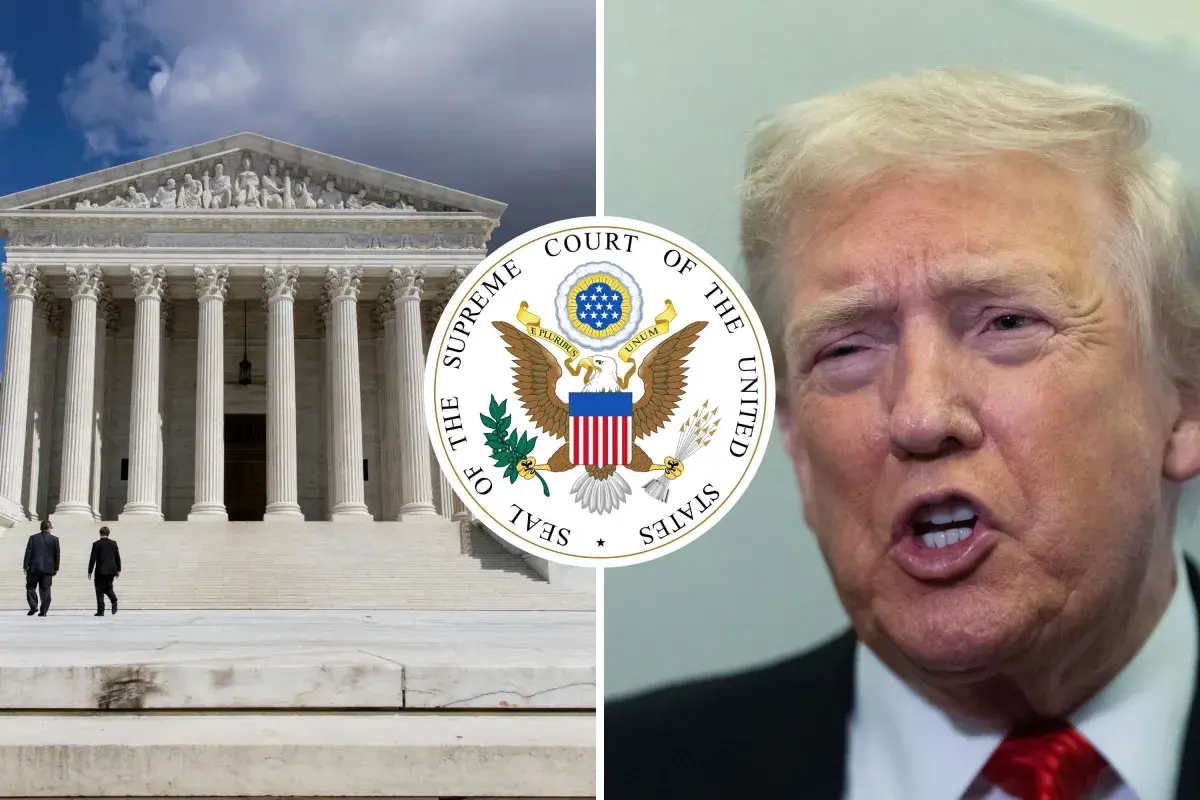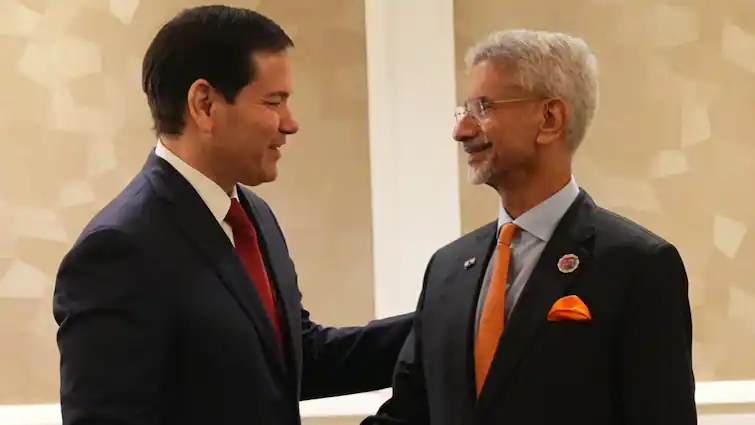Copyright Newsweek

The Supreme Court will hear arguments today in Trump v. V.O.S. Selections, Inc., a case that could redefine the balance of power between the White House and Congress over trade and emergency authority. The outcome will determine whether President Donald Trump’s sweeping tariffs—imposed in early 2025 under emergency powers—were lawful and could shape how presidents invoke crises to act on economic or foreign-policy grounds. Newsweek contacted the Office of the Solicitor General and attorneys for the private business plaintiffs for comment via email outside of normal office hours on Wednesday. Why It Matters At stake in Trump v. V.O.S. Selections is not just the legality of the former president’s sweeping tariffs, but the scope of executive power itself. The Supreme Court’s decision will determine whether a president can use emergency authority to reshape U.S. trade policy without congressional approval—a ruling that could redefine the balance of power between the White House and Congress and set a precedent for how far future presidents can go in invoking "national emergencies" to pursue economic or foreign-policy goals. What To Know Legal And Political Backdrop At issue is Trump’s reliance on the International Emergency Economic Powers Act (IEEPA), a 1977 statute allowing the president to regulate certain international transactions during a declared national emergency. Trump used that law to impose tariffs of up to 125 percent on imports from countries including China, Mexico, and Canada, and later on nearly all U.S. trading partners. The administration argued that sustained trade deficits and the influx of fentanyl across U.S. borders constituted "unusual and extraordinary threats" to national security and the economy. The lower courts disagreed. In August, the U.S. Court of Appeals for the Federal Circuit, sitting en banc, ruled 7-4 that IEEPA’s language empowering the president to "regulate importation" does not extend to the kind of open-ended tariffs Trump imposed. The majority said Congress had "carefully constructed tariff schedules" and had not delegated authority for worldwide duties of unlimited duration. Applying the so-called major questions doctrine, the court concluded that measures of such "vast economic and political significance" required a clear statement from Congress. Judge Richard Taranto, writing in dissent, countered that Congress had deliberately given presidents broad discretion under IEEPA to handle emergencies involving national security or foreign commerce. He said it was "especially out of place" to limit executive flexibility in a law meant for crisis response. The Supreme Court accepted the case on an expedited basis in September, consolidating it with a related challenge filed by the educational toy company Learning Resources, Inc. Oral arguments were set for the first week of the November session, and it is those that will be heard today—a rare sign of urgency that could indicate a decision within weeks rather than months. What The Supreme Court Will Decide The justices will confront two questions: First, whether IEEPA authorizes the tariffs; second, if it does, whether that law unconstitutionally delegates Congress’s taxing power to the executive branch. The administration, represented by Solicitor General D. John Sauer, contends that tariffs are a legitimate tool for "regulating imports" to address threats. Sauer cites historic precedents where Congress empowered presidents to adjust tariffs in response to foreign conduct, arguing that "there is nothing novel" about such delegations. The challengers—an alliance of small businesses and 12 states—argue that tariffs are taxes, and that only Congress can impose them. The Stakes For Power And Policy The stakes are substantial. According to government data as reported in Newsweek, the tariffs have generated nearly $195 billion in revenue this year and are projected to yield $3 trillion over a decade. A ruling against the administration could unravel trade deals negotiated under the tariff framework and upend fiscal projections. A ruling in Trump’s favor could greatly expand the use of emergency powers in economic policy. Legal observers are also watching whether the Court’s conservative majority—which invoked the major questions doctrine to strike down Biden-era initiatives on student loans, pandemic mandates, and climate rules—applies the same standard to a Republican president. "Absent vigilance under the major questions doctrine, legislation would risk becoming nothing more than the will of the current president," the plaintiffs’ lawyers wrote, quoting Justice Neil Gorsuch from an earlier case. The Court’s ruling will determine whether those policies stand as a bold assertion of presidential authority—or a step too far into Congress’s domain. A decision is expected before year’s end. What People Are Saying President Donald Trump in a Truth Social post November 2, said: "The only people fighting us are Foreign Countries who for years have taken advantage of us, those who hate our Country and, the Democrats, because our numbers are insurmountably good. I will not be going to the Court on Wednesday in that I do not want to distract from the importance of this Decision. "It will be, in my opinion, one of the most important and consequential Decisions ever made by the United States Supreme Court. If we win, we will be the Richest, Most Secure Country anywhere in the World, BY FAR. If we lose, our Country could be reduced to almost Third World status—Pray to God that that doesn’t happen!" Solicitor General D. John Sauer and Assistant Attorney General Brett Shumate, in a letter filed with the Federal Court, August 11, wrote: "There is no substitute for the tariffs and deals that President Trump has made. One year ago, the United States was a dead country, and now, because of the trillions of dollars being paid by countries that have so badly abused us, America is a strong, financially viable, and respected country again. "If the United States were forced to pay back the trillions of dollars committed to us, America could go from strength to failure the moment such an incorrect decision took effect," he wrote, adding that, "The president believes that our country would not be able to pay back the trillions of dollars that other countries have already committed to pay, which could lead to financial ruin." What Happens Next After hearing arguments today, the Supreme Court will deliberate privately, with a ruling expected as soon as December given the expedited schedule. If the justices uphold Trump’s tariffs, it will affirm broad presidential authority under the International Emergency Economic Powers Act and allow future presidents to reshape trade policy without Congress. If they strike them down, the tariffs would likely be lifted, importers could seek refunds, and Congress might move to clarify limits on emergency powers. Either way, the ruling will set clear limits—or expand them—on a president’s ability to invoke "national emergencies" in major economic or foreign-policy actions.



